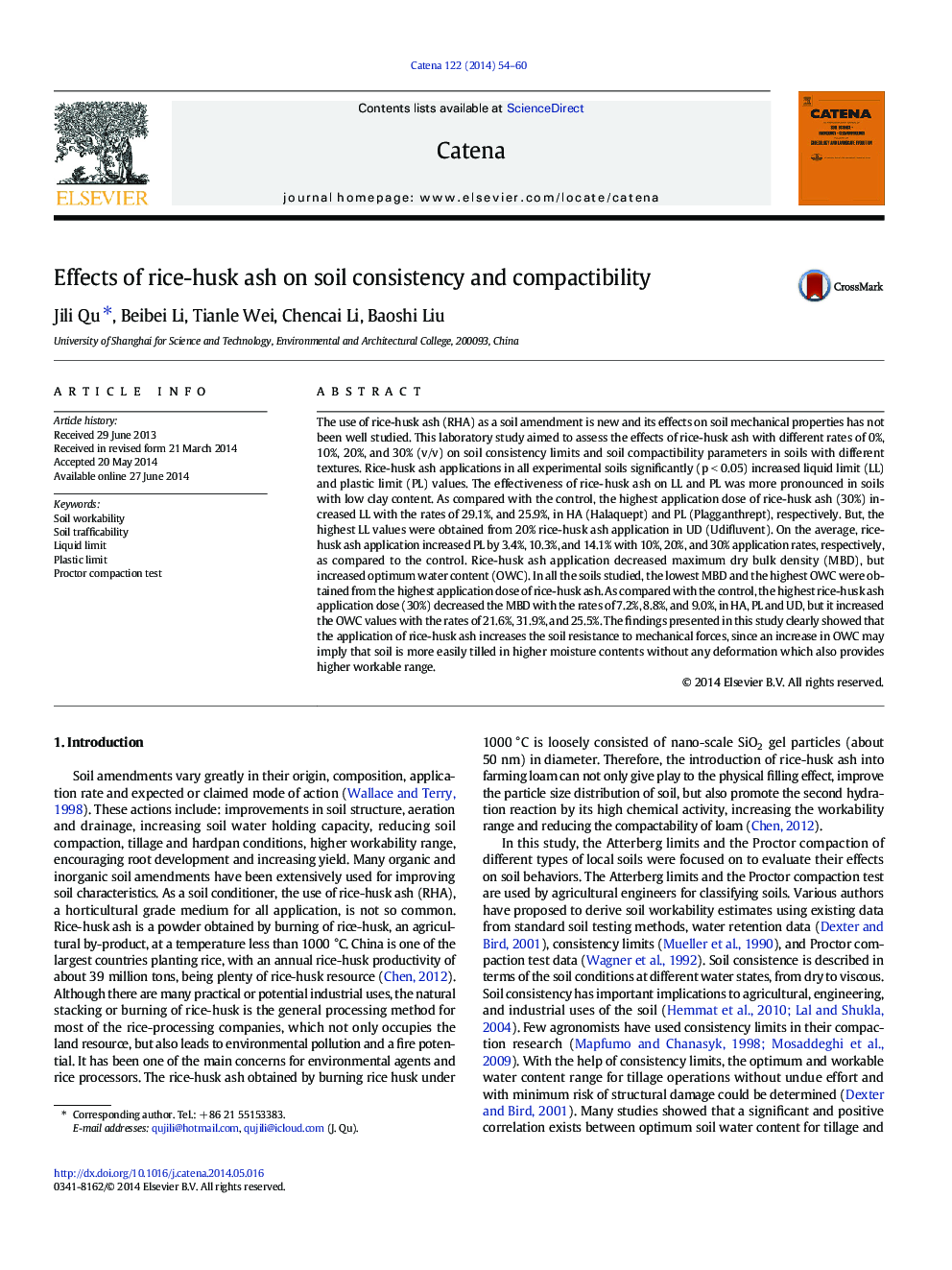| کد مقاله | کد نشریه | سال انتشار | مقاله انگلیسی | نسخه تمام متن |
|---|---|---|---|---|
| 4571398 | 1629230 | 2014 | 7 صفحه PDF | دانلود رایگان |
• Rice-husk ash (RHA) increases the soil consistency (liquid limit, plastic limit).
• RHA increases the optimum moisture content (OMC) of soil.
• RHA decreases the soil compactibility.
• RHA promotes the aggregate stability, thus improves the workability of soil.
The use of rice-husk ash (RHA) as a soil amendment is new and its effects on soil mechanical properties has not been well studied. This laboratory study aimed to assess the effects of rice-husk ash with different rates of 0%, 10%, 20%, and 30% (v/v) on soil consistency limits and soil compactibility parameters in soils with different textures. Rice-husk ash applications in all experimental soils significantly (p < 0.05) increased liquid limit (LL) and plastic limit (PL) values. The effectiveness of rice-husk ash on LL and PL was more pronounced in soils with low clay content. As compared with the control, the highest application dose of rice-husk ash (30%) increased LL with the rates of 29.1%, and 25.9%, in HA (Halaquept) and PL (Plagganthrept), respectively. But, the highest LL values were obtained from 20% rice-husk ash application in UD (Udifluvent). On the average, rice-husk ash application increased PL by 3.4%, 10.3%, and 14.1% with 10%, 20%, and 30% application rates, respectively, as compared to the control. Rice-husk ash application decreased maximum dry bulk density (MBD), but increased optimum water content (OWC). In all the soils studied, the lowest MBD and the highest OWC were obtained from the highest application dose of rice-husk ash. As compared with the control, the highest rice-husk ash application dose (30%) decreased the MBD with the rates of 7.2%, 8.8%, and 9.0%, in HA, PL and UD, but it increased the OWC values with the rates of 21.6%, 31.9%, and 25.5%. The findings presented in this study clearly showed that the application of rice-husk ash increases the soil resistance to mechanical forces, since an increase in OWC may imply that soil is more easily tilled in higher moisture contents without any deformation which also provides higher workable range.
Journal: CATENA - Volume 122, November 2014, Pages 54–60
